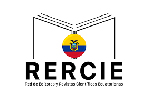Cosmopolitanism to Come: Derrida, Mignolo, and Latin American “Border Thinking”
DOI:
https://doi.org/10.18537/iuris.20.01.07Keywords:
derrida, mignolo, cosmopolitanism, democracy to come, border thinking, cosmos, voicesAbstract
We live in age where diversity is increasingly accepted as a value as well as a fact. But this development is also contested by a global rise in authoritarian nationalism. To help us abet the former and resist the latter, cosmopolitanism must propose a notion of global unity that is composed of rather than imposed on difference. Jacques Derrida and Walter Mignolo offer different versions of this view of cosmopolitanism. Derrida’s is based on his notion of “democracy to come.” He characterizes this idea as an “unconditional” or “quasi-transcendental” injunction. Mignolo’s cosmopolitanism castigates this injunction as an “abstract universal.” He offers instead “a critical and dialogic” view of cosmopolitanism that is based more specifically on the “colonial difference” or “border thinking” of Latin American subaltern groups. I argue that Derrida’s many references to “voices,” and Mignolo’s to the voices of the Zapatistas in Mexico, imply that the dialogic interplay among these discourses simultaneously holds them together and keeps them apart, forming the multivoiced body that we call society. This agonistic interaction produces new voices and resists the “oracles” that would attempt to convert it into a homogeneous discourse. Moreover, my version of the two thinkers’ use of ‘voice’ retains the universality of Derrida’s unconditional injunction but on the basis of the worldly immanency urged by Mignolo’s border thinking. The universality consists in a reworking of Derrida’s idea of “unconditional hospitality” so that we can speak of ourselves, other species, and natural formations – all the inhabitants of the cosmos – as voices with wildly different “tongues.” In Mignolo’s turn, this vocal viewpoint allows us to stretch his ideas of “subaltern” and “border thinking” so that they refer to all marginalized inhabitants of the cosmos and to the commitment that all will be heard by all.
Downloads
References
Anzaldúa, Gloria (1999), Borderlands/La Frontera: The New Mestiza, 2nd. ed., San Francisco, CA: Aunt Lute Books.
Appiah, Kwame Anthony (2006), Cosmopolitanism: Ethics in a World of Strangers, New York: W. W. Norton and Company.
Bakhtin, Mikhail (1981), The Dialogic Imagination: Four Essays, ed. Michael Holquist, trans. Caryl Emerson and Michael Holquist, Austin: University of Texas Press.
Beverley, John (2004), Subalternity and Representation: Arguments in Cultural Theory, Durham, NC: Duke University Press.
CCRI-CG (Comite Clandestino Revolucionario Indígena, Comandancia General del Ejercito Zapatista de Liberacion Nacional) (1995), Shadows of Tender Fury: The Letters and Communiques of Subcomandante Marcos and the Zapatista Army of National Liberation, trans. Frank Bardacke, Leslie Lopez, and the Watsonville, California Human Rights Committee, New York, NY: Monthly Review Press.
Cixous, Hélène (2009), “Jacques Derrida: Co-Responding Voix to You,” in Derrida and the Time of the Political, ed. Pheng Cheah and Suzanne Guerlac, Durham, NC: Duke University Press.
Deleuze, Gilles (1990), The Logic of Sense, trans. Mark Lester with Charles Stivale; ed. Constantin V. Boundas, New York: Columbian University Press.
Deleuze, Gilles and Félix Guattari (1987), A Thousand Plateaus: Capitalism and Schizophrenia, trans. Brian Massumi, Minneapolis: University of Minnesota Press.
Derrida, Jacques (2007), “A Certain Impossible Possibility of Saying the Event,” in The Later Derrida, ed. W. J. T. Mitchell and Arnold I. Davidson, Chicago, IL: Chicago University Press, pp. 223-243.
Derrida, Jacques (2005a), Rogues: Two Essays on Reason, trans. Pascale-Anne Brault and Michael Naas, Stanford, CA: Stanford University.
Derrida, Jacques (2005b), The Politics of Friendship, tans. Georges Collins, London: Verso.
Derrida, Jacques (2003), “Autoimmunity: Real and Symbolic Suicides – A Dialogue with Jacques Derrida,” trans. Pascale-Anne Brault and Michael Naas, in Philosophy in a Time of Terror, ed. Giovanna Borradori, Chicago: Chicago University Press, pp. 85-136.
Derrida, Jacques (2002), Negotiations: Interventions and Interviews, 1971-2001, ed., trans. Elizabeth Rottenberg, Stanford, CA: Stanford University Press.
Derrida, Jacques (2001), On Cosmopolitanism and Forgiveness, trans. Mark Dooley and Michael Hughes, London: Routledge.
Derrida, Jacques (1999a), Adieu to Emmanuel Levinas, trans. M. Nass and P.-A. Brault, Stanford, CA: Stanford University Press.
Derrida, Jacques (1999b), “Marx & Sons,” in Ghostly Demarcations: A Symposium on Jacques Derrida’s Specters of Marx, ed. Michael Sprinker, London: Verso, pp. 213-269.
Derrida, Jacques (1995), “Khora,” in On the Name, trans. ed. Thomas Dutoit (Stanford, CA: Stanford University Press, pp. 89-127.
Derrida, Jacques (1994a), “The Spatial Arts: An Interview with Jacques Derrida,” Peter Brunette and David Wills, trans. Laurie Volpe, in Deconstruction and the Visual Arts: Art, Media, Architecture, ed. Peter Brunette and David Wills, Cambridge, UK: Cambridge University Press, pp. 9-32.
Derrida, Jacques (1994b), Specters of Marx, trans. Peggy Kamuf, New York: Routledge.
Derrida, Jacques (1992a), The Other Heading: Reflections on Today’s Europe, trans. Pascale-Anne Brault and Michael B. Nass, Bloomington, IN: Indiana University Press.
Derrida, Jacques (1992b), Acts of Literature, ed. D. Attridge, London: Routledge.
Derrida, Jacques (1973), Speech and Phenomena: And Other Essays on Husserl’s Theory of Signs, trans. David B. Allison, Evanston: Northwestern University Press.
Derrida, Jacques and Anne Duformantelle (2000), Of Hospitality, trans. Rachel Bowlby, Stanford, CA: Stanford University Press.
Dews, Peters (1987), Logics of Disintegration: Post-Structuralist Thought and the Claims of Critical Theory, London: Verso.
Eagleton, Terry (1983), Literary Theory: An Introduction. Minneapolis: University of Minnesota Press.
Evans, Fred (2019), Public Art and the Fragility of Democracy: An Essay in Political Aesthetics. New York: Columbia University Press.
Evans, Fred (2016), “Derrida and the ‘Autoimmunity’ of Democracy,” Journal of Speculative Philosophy 30, no. 3: 301-15.
Evans, Fred (2013), “The Clamor of Voices: Neda, Barack, and Social Philosophy,” Symposium: Canadian Journal of Continental Philosophy, 17 (2), Fall/Automne, 158-177.
Evans, Fred (2010), “’Unnatural Participations’: Merleau-Ponty, Deleuze, and Environmental Ethics,” Philosophy Today, 54, 142-52.
Evans, Fred (2008), The Multivoiced Body: Society and Communication in the Age of Diversity. New York: Columbia University Press.
Evans, Fred (1992), Psychology and Nihilism: A Genealogical Critique of the Computational Model of Mind, Albany, NY: SUNY Press.
Foucault, Michel (1970), The Order of Things: An Archaeology of the Human Sciences, trans. unnamed, New York: Vintage Books.
Foucault, Michel (1972), The Archaeology of Knowledge and the Discourse on Language, trans, A.M. Sheridan Smith, New York: Harper and Row.
Gasché, Rodolphe (2009), Europe, or the Infinite Task: A Study of a Philosophical Concept, Stanford, CA: Stanford University Press.
Gasché, Rodolphe (1986), The Tain of the Mirror: Derrida and the Philosophy of Reflection, Cambridge, MA: Cambridge University Press.
Gilly, Adolfo (2008), “Chiapas and the Rebellion of the Enchanted World,” in Rural Revolt in Mexico, ed. Daniel Nugent, Durham: Duke University Press, 318-335.
Grijalva, Juan Carlos (2004), “Vasconcelos o La Búsqueda de la Atlántida. Exotismo, Arqueología y Utopía del Mestizaje en La Raza Cósmica,” Revista de Crítica Literaria Latinoamericana, Año XXX, No. 60, Lima-Hanover, 2do. Semestre de 2004, 329-345.
Hägglund, Martin (2008), Radical Atheism: Derrida and the Time of Life, Stanford, CA: Stanford University Press.
Holloway, John (1996), “Dignity’s Revolt,” in Zapatista! Reinventing Revolution in Mexico, eds. J. Holloway and E. Pelaez, London and Sterling, VA: Pluto Press, pp. 159-98.
Joyce, James (1946), The Portrait of the Artist as a Young Man. In The Portable James Joyce, ed. Harry Levin. New York: Penguin.
Kuttner, Robert (2018), Can Democracy Survive Global Capitalism. New York: W. W. Norton and Company, Inc.
Loewenstein, Karl (1937), “Militant Democracy and Fundamental Rights, I and II,” American Political Science Review, Vol. 31, #s 3 and 4, June and August, 417-432, 638-658.
Lawlor, Leonard (2007), This is not Sufficient: An Essay on Animality and Human Nature, New York, NY: Columbia University Press.
Lawlor, Leonard (2003), Thinking Through French Philosophy: The Being of the Question, Bloomington, IN: Indiana University Press.
Lefort, Claude (1986), The Political Forms of Modern Society: Bureaucracy, Democracy, Totalitarianism, ed. John B. Thompson. Cambridge, MA: MIT Press.
Letich, Vincent B. (2007), “Late Derrida: The Politics of Sovereignty,” in The Later Derrida, ed. W. J. T. Mitchell and Arnold I. Davidson, Chicago, IL: Chicago University Press.
Lugones, María (1994), “Purity, Impurity, and Separatio,” Signs: Journal of Women in Culture and Society, 19:2, 458-479.
Mendieta, Eduardo (2009), “From Imperial to Dialogical Cosmopolitanism,” Ethics and Global Politics, 2.3, 241-258.
Mendieta, Eduardo (2007), Global Fragments: Globalization, Latinamericanisms, and Critical Theory, Albany, NY: SUNY Press.
Mehta, Suketu (2019), This Land is Our Land: An Immigrant’s Manifesto, New York: Farrar, Straus, and Giroux.
Merleau-Ponty, Maurice (2012), The Phenomenology of Perception, trans. Donald A. Landes, New York: Routledge.
Mignolo, Walter (2018a), “The Decolonial Option,” in Walter Mignolo and Catherine Walsh, On Decoloniality: Concepts, Analytics, Praxis, Durham, NC: Duke University Press.
Mignolo, Walter (2018b), “Decoloniality and Phenomenology: The Geopolitics of Knowing and Epistemic/Ontological Colonial Differences,” Journal of Speculative Philosophy, 32:3, 360-87.
Mignolo, Walter (2010), “Introduction: Immigrant Consciousness,” in Rodolfo Kusch, Indigenous and Popular Thinking in América, trans. María Lugones and Joshua M. Price, Durham, NC: Duke University Press.
Mignolo, Walter (2000a), “The Many Faces of Cosmo-polis: Border Thinking and Critical Cosmopolitanism,” Public Culture 12:3, 721-748.
Mignolo, Walter (2000b), Local Histories/Global Designs: Coloniality, Subaltern Knowledges, and Border Thinking, Princeton, NJ: Princeton University Press.
Mignolo, Walter and Catherine Walsh (2018), On Decoloniality: Concepts, Analytics, Praxis, Durham, NC: Duke University Press.
Mouffe, Chantal (2000), The Democratic Paradox, London: Verso.
Rosanvallon, Pierre (2013), The Society of Equals, trans. Arthur Goldhammer, Cambridge: Harvard University Press.
Smith, Tony (2006), Globalization: A Systematic Marxian Account, Boston: Brill.
Subcomandante Marcos (1996), “Interview,” Chiapas, no. 3, 109-117.






